Related Research Articles
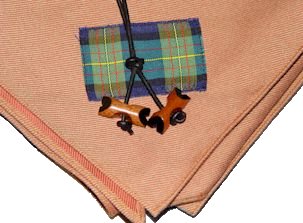
Wood Badge is a Scouting leadership programme and the related award for adult leaders in the programmes of Scout associations throughout the world. Wood Badge courses aim to make Scouters better leaders by teaching advanced leadership skills, and by creating a bond and commitment to the Scout movement. Courses generally have a combined classroom and practical outdoors-based phase followed by a Wood Badge ticket, also known as the project phase. By "working the ticket", participants put their newly gained experience into practice to attain ticket goals aiding the Scouting movement. The first Wood Badge training was organized by Francis "Skipper" Gidney and lectured at by Robert Baden-Powell and others at Gilwell Park in September 1919. Wood Badge training has since spread across the world with international variations.

Founded in 1908, The Scout Association of Malta (TSAM) is the Scouting organization in Malta. TSAM has always maintained a high and respectable Scouting tradition. Its leaders and members are committed to further the ideals of Scouting in line with those as traditionally established by the youth movement's Founder, Lord Robert Baden-Powell of Gilwell, and as further developed by the World Organization of the Scout Movement (WOSM). TSAM is a forward looking youth movement which, as a non-governmental organisation (NGO), enjoys great respect both locally and internationally. It is the only association in Malta which is recognised by the WOSM, and is also a member of the European Scout Region.
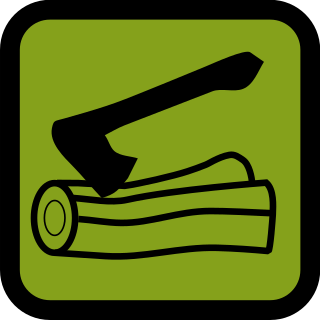
Gilwell Park is a camp site and activity centre in East London located in the Sewardstonebury area of Waltham Abbey, within Epping Forest, near the border with Chingford. The 109-acre (44 ha) site is owned by The Scout Association, is used by Scouting and Guiding groups. As the original base of leadership training in the Scout movement, it is an important site of the worldwide Scouting movement.

Malaysian Scouts Association is the largest informal youth and educational organisation in Malaysia, and member of World Organization of the Scout Movement (WOSM).
Scouting and Guiding in mainland China was reported as banned with the establishment of the People's Republic of China (PRC) by the Communist Party since 1949. Instead, the Young Pioneers of China and the Communist Youth League, led by the Communist Party, have become the dominant youth organization in mainland China for younger and older youth, respectively. However, China now has multiple and originally separate Scouting activities within its borders. In 2004, the Scout Club of Hainan (海南童子军俱乐部), borrowing heavily from Scouting in terms of emblems, uniforms and activities, was founded in Hainan Province; it is, however, not affiliated with worldwide Scouting. An attempt to organize a nationwide Scouting organization in Wuhan was ended by the government in 2004. The Scout Association of the People's Republic of China (中华人民共和国童军总会), founded in 2008 serves Venture Scouts in both genders as well as Rover Scouts. The Rover Explorer Service Association operate groups in China.

The World Scout Indaba was a series of three gatherings of Scout Leaders from around the world, held in 1952, 1957 and 1960. The idea was proposed in 1949 at the 12th World Scout Conference in Elvesæter, Norway where The Boy Scouts Association of the United Kingdom submitted that of the large number of Scouters working in a pack, troop or crew, only a very small percentage were ever able to take part in a major international Scout gathering. Indaba is Zulu for "tribal conference" and the name was suggested by Lord Rowallan.

A Scout leader or Scouter generally refers to the trained adult leader of a Scout unit. The terms used vary from country to country, over time, and with the type of unit.
Scouting started in Victoria, Australia, as early as 1907 and local Boy Scout patrols and troops formed independently. Several separate central organisations began operating including Boys' Brigade Scouts, Church Lads' Brigade Scouts, Chums Scouts, Imperial Boy Scouts, Girl Peace Scouts, Imperial Boy Scouts Victoria Section, Imperial Boy Scouts Victorian Section, Gippsland Boy Scouts Association, Australian Boy Scouts, Australian Imperial Boy Scouts, The Boy Scouts Association, Life-Saving Scouts of the Salvation Army and Methodist Boy Scouts.
John Frederick Colquhoun, CBE, nicknamed "Koko", was a long-serving headquarters official of The Boy Scouts Association of the United Kingdom and served on the World Organization of the Scout Movement's committee from 1959 to 1965.
Australian Rover Moots are the major national event run by Australian Rovers who are part of Scouts Australia.

Queen's Gate House, still commonly known by its previous name of Baden-Powell House, is a conference centre in South Kensington, London. It was built as a tribute to Lord Baden-Powell, the founder of Scouting, and has served as the headquarters for The Scout Association, as a hostel providing modern and affordable lodging for Scouts, Guides, their families and the general public staying in London and as a conference and event venue.

The Pathfinder & Rover Explorer Scouts' Association (P-RESA) is an independent Traditional Scouting Association in the United Kingdom, with International branches. The Association's training programme runs along the lines of Baden-Powell's original Scouting for Boys, upholding the traditions and practices set out by B-P, using the 1938 Boy Scouts' Association Policy Organisation & Rules (POR) as its basis.

A Scout group is a local organizational structure in some Scouting organizations that consists of different age programs, gender units and/or multiple units of the same age program.
The Scout and Guide movement in Malta is served by three organizations:
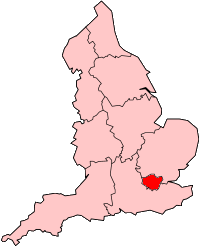
Scouting in the region of Greater London is largely represented by The Scout Association of the United Kingdom and some Groups of traditional Scouting including the Baden-Powell Scouts' Association.

The British Boy Scouts and British Girl Scouts Association is an early scouting organisation, having begun as the Battersea Boy Scouts in 1908. The organisation was renamed as the British Boy Scouts and launched as a national organisation on 24 May 1909. In association with other Scout organisations, the BBS formed the National Peace Scouts in 1910. The BBS instigated the first international Scouting organisation, the Order of World Scouts in 1911.
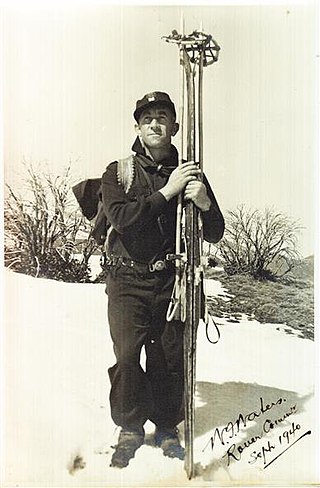
William Francis "Bill" Waters was Scouts Victoria's Headquarters Commissioner for Rover Scouts between 1930 and 1965.
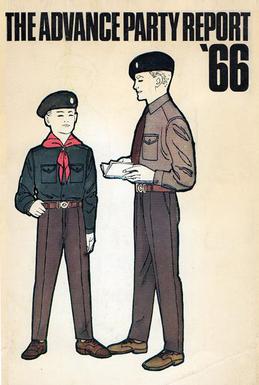
The Boy Scouts Association's The Chief Scout's Advance Party Report 1966 attempted to address the association's falling enrollment numbers and modernise its programs. It resulted in changes to traditional iconic uniforms, changes to awards, training schemes, the association's name and other nomenclature, reduced distinctions between Cubs and Scouts and discontinuation of Rovers. However, the changes failed to halt decline in older enrolments, resulting in a shift to younger ages and also resulted in disaffection, a schism in the organisation, growth of the alternate British Boy Scouts and European Scout Federation, formation of independent Scout groups and further alternate Scout organisations, particularly the Traditional Scouting Baden-Powell Scouts' Association and helped to re-establish understanding of Scouts as a movement rather than a single organisation.

William Frederick de Bois Maclaren was publisher, businessman and Scout Commissioner for Rosneath, Dunbartonshire, Scotland. He is most recognized as the first major benefactor of Scouting by donating Gilwell Park in 1919.

B-P's footprint is a casting, usually in bronze or brass, of the right foot of Lord Baden-Powell, the founder of the Scout and Guide Movements, who is known as "B-P." The idea is that people may put their foot into this casting, so that they can say that they have "walked in the footsteps of B-P."
References
- ↑ John S. Wilson (1959), Scouting Round the World. First edition, Blandford Press. p. 59
- 1 2 "Scout Records index TC2, letters between Baden-Powell and P.B. Nevill" (PDF). Retrieved 23 July 2014.
- 1 2 3 4 5 P.B. Nevill (1960). My Scouting Story. London: Roland House Scout Settlement.
- ↑ P.B. Nevill (1966). Scouting in London 1908-1965. London: Trustees of The London Scout Council (1913-1965.
- 1 2 3 4 5 6 C.R. "Johnny" Walker. "Nevill, Percy Bantock, O.B.E., F.C.A. 1887-1975, Trustee of Roland House. Early Commissioner for Rover Scouts" . Retrieved 23 July 2014.
- ↑ "The Canadian Leader" (PDF). November 1975. Retrieved 23 July 2014.
- ↑ Kristopher Ray P. Salas. "Early beginnings of Rover Scouting" . Retrieved 23 July 2014.